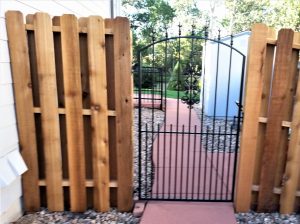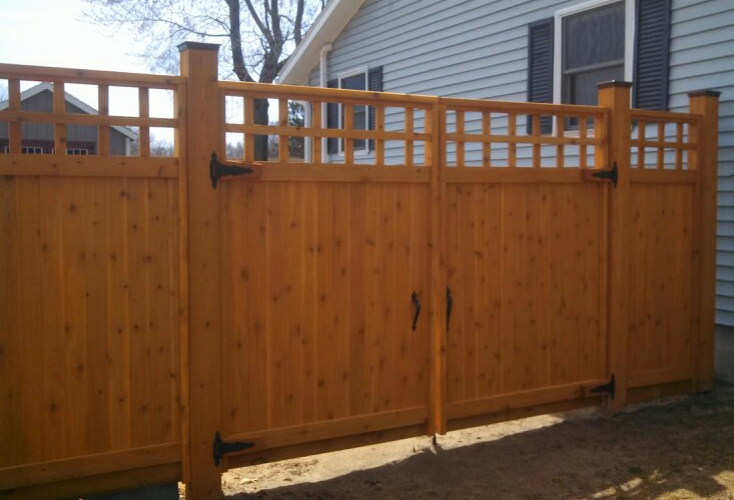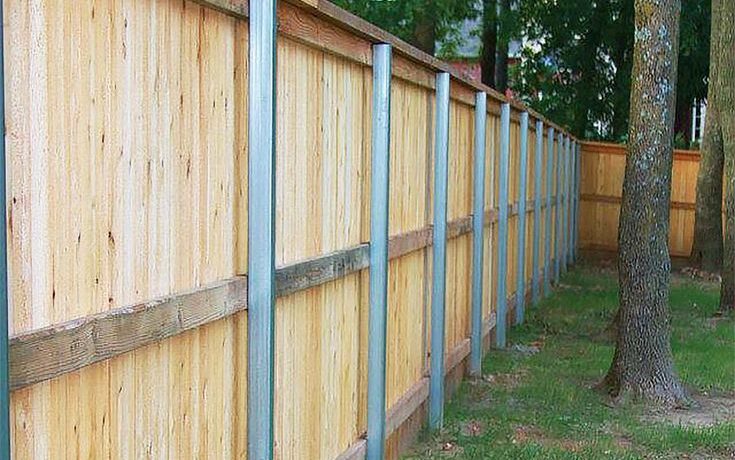Featured
What Kinds Of Fence Materials Are Offered for Residential and Commercial Projects?
Fencing is a useful and flexible enhancement to any type of residential or commercial property, offering protection, personal privacy, and visual allure. Selecting the ideal material relies on the certain needs of your domestic or business project. Let's check out the most popular secure fencing products and what makes each ideal for various applications.- Wood Secure fencing. A perennial preferred, timber fencing provides a natural and ageless look that fits numerous property kinds.
Advantages:
Convenience: Available in styles like split-rail, privacy, and picket fences. Customizable: Can be stained or painted to match your design. Budget friendly: A cost-efficient option for several homeowners. Limitations: Normal maintenance is essential to protect against rot, warping, and pests.
- Plastic Fence. Vinyl has come to be a go-to choice for those who desire low-maintenance, sturdy fence.
Benefits:

Climate Resistant: Takes care of extreme temperatures and moisture without deteriorating. Low Upkeep: No demand for paint or staining; periodic cleaning suffices. Wide Array: Can be found in different colors and appearances, including wood-like surfaces. Disadvantages: The ahead of time cost is greater, however long-lasting savings on maintenance can counter this.
- Chain-Link Secure fencing. Practical and cost-effective, chain-link secure fencing is optimal for securing big areas like industrial websites or playgrounds.
Advantages:
Cost: Among the least pricey fencing alternatives. Durability: Resistant to weather and physical damage. Adjustable: Can consist of privacy slats or coverings for a refined look. Considerations: Offers limited privacy unless supplemented with additional attributes.
- Light weight aluminum Secure fencing. Understood for its smooth and contemporary appearance, light weight aluminum is a preferred choice for household and commercial buildings.
Secret Features:
Rust-Free: A best solution for moist environments. Lightweight: Easier to mount contrasted to steel or iron. Attractive: Often utilized to duplicate the look of wrought iron. Limitations: Not as solid as steel, making it less appropriate for high-security requirements.
- Wrought Iron Fencing. Wrought iron integrates sophistication with stamina, making it a premium option for upscale buildings.

Benefits:
Customizable Styles: Includes a sophisticated, special touch to any kind of building. Phenomenal Durability: Stands the test of time with appropriate maintenance. Protection: Difficult to damage or breach. Difficulties: High price and the need for regular maintenance to avoid rust.
- Composite Fencing. Compound fencing, made from a mix of timber fibers and plastic, is an eco-friendly option with the appearance of natural timber.
Benefits:
Eco-Friendly: Usually made from recycled materials. Sturdiness: Resistant to weather, rot, and bug damage. Low Maintenance: Needs little maintenance compared to traditional timber. Drawbacks: Higher initial costs contrasted to basic timber secure fencing.
- Steel Secure fencing. Steel fencing is a robust solution for residential properties calling for maximum protection.
Features:

Resilient: Withstands substantial physical and environmental anxiety. Adjustable Coatings: Powder finishing enhances its resistance to corrosion. Security-Focused: Ideal for high-risk or industrial locations. Considerations: Heavier and more costly than aluminum.
- Bamboo Secure fencing. For eco-conscious jobs, bamboo offers a sustainable yet trendy choice.
Benefits:
Ecologically Friendly: Bamboo regrows swiftly, making it sustainable. Special Visual: Includes an all-natural, unique touch to your property. Cost-efficient: Commonly cheaper than hardwood alternatives. Obstacles: Much less sturdy in wet climates and might require treatments for longevity.
- Masonry and Stone Fence. For a genuinely irreversible service, stone or brick fencing offers unrivaled longevity and aesthetic charm.
Key Features:
Resilience: Lasts for decades with very little maintenance. Noise Decrease: Ideal for residential or commercial properties near active roadways. Classy Appearance: Develops a luxurious and majestic appearance. Disadvantages: High installation costs and minimal adaptability for changes.
Selecting the Right Secure Fencing Material. When choosing fencing for your residential or commercial property, think about the list below factors:
Purpose: Identify whether you prioritize personal privacy, safety, or appearances. Budget: Some products, like wood and chain-link, are a lot more cost effective, while others, like rock or wrought iron, need a bigger financial investment. Maintenance Requirements: Materials like plastic and light weight aluminum are low-maintenance, while timber and iron call for even more care. Neighborhood Environment: Choose a product that withstands your area's climate conditions. Conclusion. From the rustic appeal of timber to the modern elegance of aluminum, there's a fencing product for every single domestic or industrial task. Each choice offers unique benefits, so understanding your home's certain needs will assist guide your decision. Consult a professional fencing professional to discover layouts, products, and setup options to bring your vision to life.
Latest Posts
Find Out Save Big on Car Maintenance with Montclare Auto Repair’s Special Deals
Published May 27, 25
1 min read
Explore WyHy Federal Credit Union – Essential Perks for Your Financial Success
Published May 27, 25
1 min read
Discover WyHy FCU – Key Advantages for Your Future
Published May 24, 25
1 min read
More
Latest Posts
Find Out Save Big on Car Maintenance with Montclare Auto Repair’s Special Deals
Published May 27, 25
1 min read
Explore WyHy Federal Credit Union – Essential Perks for Your Financial Success
Published May 27, 25
1 min read
Discover WyHy FCU – Key Advantages for Your Future
Published May 24, 25
1 min read